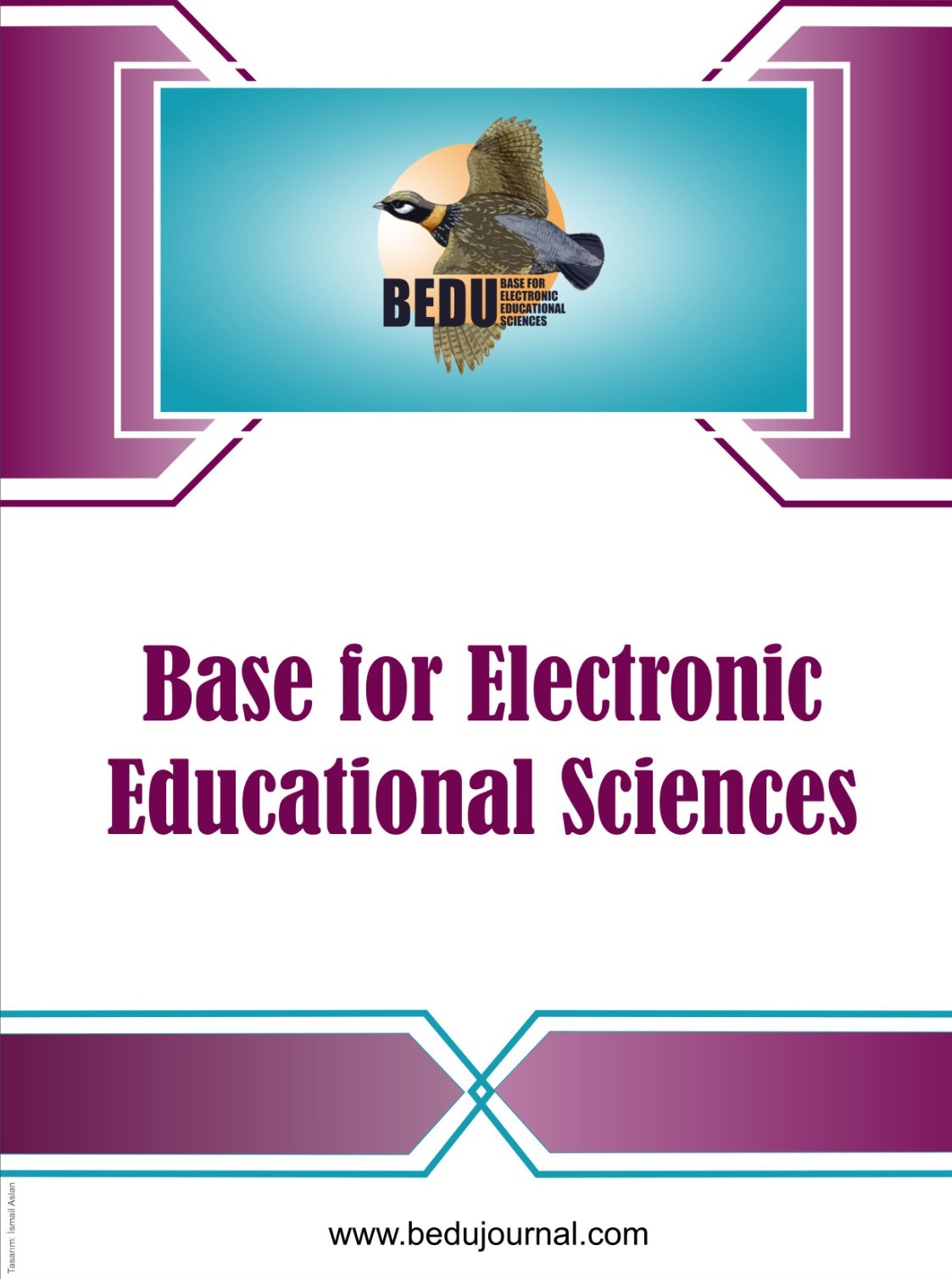Research article | Open Access
Base for Electronic Educational Sciences 2022, Vol. 3(2) 1-11
Education under Siege and Fire: Experiences of PBL for Leadership Skills Development from Gaza
pp. 1 - 11 | DOI: https://doi.org/10.29329/bedu.2022.471.1
Publish Date: September 30, 2022 | Single/Total View: 169/816 | Single/Total Download: 248/1.410
Abstract
Designing and implementing emergency education solutions during an ongoing crisis is a significant issue. Since 2007, the Israeli blockade and the ongoing conflict have had a significant negative impact on the education sector in Gaza. This field note addresses the issues affecting the education sector in the Gaza Strip and outlines Project-Based Learning (PBL), an education technique for developing leadership abilities that could serve as an emergency response to education. This intervention was done with 76 third graders from Al Zaitun Coed Elementary C School in Gaza and two classes of third graders were selected at random. The participants were separated into two groups of equal size, each containing 38 pupils. The experimental group was taught English using the project-based learning strategy, whereas the control group was instructed using the traditional way. The research instrument was an observation card on which the student's leadership qualities were scored prior to and after application. On the post-application observation card, the experimental group's leadership skills were rated higher on average by the results. These findings were attributable to the project-based learning technique, which the researchers advocate for developing leadership abilities in English classes.
Keywords: Education Under Siege, Project-Based Learning, Leadership Skills.
APA 7th edition
Joma, A., Migdad, S., & Arvisais, O. (2022). Education under Siege and Fire: Experiences of PBL for Leadership Skills Development from Gaza. Base for Electronic Educational Sciences, 3(2), 1-11. https://doi.org/10.29329/bedu.2022.471.1
Harvard
Joma, A., Migdad, S. and Arvisais, O. (2022). Education under Siege and Fire: Experiences of PBL for Leadership Skills Development from Gaza. Base for Electronic Educational Sciences, 3(2), pp. 1-11.
Chicago 16th edition
Joma, Amjad, Safa Migdad and Olivier Arvisais (2022). "Education under Siege and Fire: Experiences of PBL for Leadership Skills Development from Gaza". Base for Electronic Educational Sciences 3 (2):1-11. https://doi.org/10.29329/bedu.2022.471.1
Al Mezan Center for Human Rights. (2019). “Total Number of Casualties on Gaza Demonstrations, 06 September 2019.” http://www.mezan.org/en/post/23570.
Gaza Community Mental Health Program (GCMHP). (2018). “The Mental Health of School Children in the Gaza Strip Workshop.” https://gcmhp.ps/2019/03/05/a-press-release-bythe-participants-of-the-mental-health-of-school-children-in-the-gaza-strip-workshop/.
Hallermann, S. and Mergendoller, J. (2011). PBL in the Elementary Grades: Step-by-Step Guidance, Tools and Tips for Standards-Focused K-5 Projects. First Edition. USA: Buck institute for Education, California.
Joma, A., Madi, I., Dokhan, N., and Arvisais, O. (2021). The Role of Palestinian NGOs in Promoting the Psychological Well-being Among Children in Emergency Settings: A Field Study on Children Enrolled in Psychosocial Support Programs in NGOs in Rafah Governorate. Journal of Psychological and Educational science. 7(3),14-39. https://www.asjp.cerist.dz/en/article/156624
Ma’an News Agency. (2013). “The electricity crisis is disrupting the educational process in Gaza.” November 26, 2013. http://www.maannews.net/Content.aspx?id=651381.
Migdad, S., Joma, A., & Arvisais, O. (2021). The Impact of the Project-Based Learning Strategy on Leadership Skills Acquisition among Palestinian Refugees Students in Gaza. Didactique, 2(1). https://revuedidactique.uqam.ca/index.php/revuedid/article/view/23/8
Migdad, S., Joma, A., & Arvisais, O. (2021). The Impact of the Project-Based Learning Strategy on Leadership Skills Acquisition among Palestinian Refugees Students in Gaza. Didactique, 2(1). https://revuedidactique.uqam.ca/index.php/revuedid/article/view/23/8
Migdad, S., Joma, A., & Tobi, A. (2021). Evaluate the Impact of Project-Based Learning Strategy on Vocabulary Acquisition: An Experimental Study among Palestinian Students in Gaza . Base for Electronic Educational Sciences, 2(2), 11-30. http://www.bedujournal.com/makale/2641
Migdad, S., Joma, A., & Tobi, A. (2021). Evaluate the Impact of Project-Based Learning Strategy on Vocabulary Acquisition: An Experimental Study among Palestinian Students in Gaza . Base for Electronic Educational Sciences, 2(2), 11-30. http://www.bedujournal.com/makale/2641
Ministry of Education and Higher Education (2017). “Ministry of Education gaps and needs for new academic year 2016-2017.” Presentation in Education Cluster led by UNICEF, GAZA, December 2019.
Ministry of Education and Higher Education (2020). “Ministry of Education gaps and needs for new academic year 2020.” Presentation in Education Cluster led by UNICEF, GAZA.
Ministry of Education and Higher Education (2020). “Statistical indicators for the Ministry of Education 2019-2020, Gaza.” https://www.mohe.ps/home/category/reports/.
Palestinian Central Bureau of Statistics (PCBS) (2022). “Press Release on the occasion of the International Population Day.” July 11, 2022. https://pcbs.gov.ps/post.aspx?lang=en&ItemID=4279
Qouta S, Odeh J. (2005). The impact of conflict on children: The Palestinian experience. Journal of Ambulatory Care Management .28(1),75–79
Save the Children (2019). A Decade of Distress: The harsh and unchanging reality for children living in the Gaza Strip. https://opt.savethechildren.net/sites/opt.savethechildren.net/files/library/A%20Decade%20of%20Distress%20online%20-%20v3.1.pdf.
Shikaki, Khalil (2007). “With Hamas in Power.” https://www.brandeis.edu/crown/publications/wp /WP1.pdf.
Thabet, A. A., Matar, S., Carpintero, A., Bankart, J., & Vostanis, P. (2011). Mental health problems among labour children in the Gaza Strip Child. Care, Health and Development, 37(1), 89–95
United Nations Educational, Scientific and Cultural Organization- UNESCO (2017). Strategic Framework for Education in Emergencies in the Arab Region (2018-2021). https://unesdoc.unesco.org/ark:/48223/pf0000261404.
United Nations Office for the Coordination of Humanitarian Affairs (2018). Occupied Palestinian Territory Portal. https://www.ochaopt.org.
United Nations Relief and Works Agency for Palestine Refugees in the Near East-UNRWA (2019). “Gaza’s ‘great march of return’ one year on: Impact on Palestinian Refugees and UNRWA Services.” https://www.unrwa.org/sites/default/files/content/resources/gaza_gmr_one_year_ on_report_eng_final.pdf.
World Bank . (2020). Poverty and Shared Prosperity 2020: Reversals of Fortune. World Bank.
